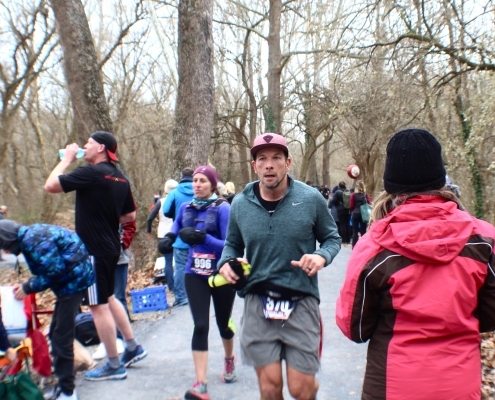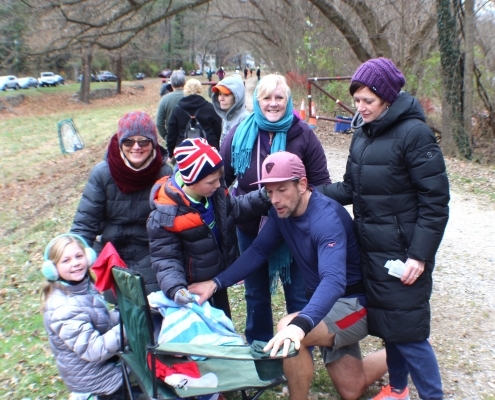Rob Bell's Blog, page 10
March 13, 2020
4 Ways To Help Your Athlete Cope With The Coronavirus Crisis

4 Ways To Help Your Athlete Cope With The Coronavirus Crisis
We are all in uncharted waters. We have never been here before and no one knows what is next.
A sailboat is off course 99% of the time! In the open ocean, sailboats are in a constant state of flux. They find the destination by making adjustments. Tacking is how they do it, the series of zigzagging maneuvers that captains perform to use the wind and stay on course.
We are all off course right now. We need to adjust.
Mental Toughness is how we deal, handle, and cope with the adversity in life. It is not easy, but it is necessary. We are all being hit with major struggles and setbacks! How you respond to the coronavirus crises will make a big impact on your mental state and performance moving forward. Puke & Rally: It’s not about the Setback, It’s about the Comeback.
Here are 4 ways to help your athlete cope with the coronavirus crisis
1. You’ll Probably Get Depressed.
2. Be An Athlete.
3. Routine, Routine, Routine…
4. Focus on Others.
1. You’ll Probably Get Depressed-
The way athletes cope with life is through their sport. If sport is okay and we are performing well, then life more easily works itself out. It is when we have severe on-the-field OR off-the-field issues that cause our stress levels and anxiety to spike.
You’ll need to treat this crisis as a major loss and/or death because the emotions experienced will be similar.
WHY?
Because once we remove our primary coping skill of sport, then we are now forced to deal in other ways and we often lack those other coping skills. This is the same reason why injured athletes experience depression.
Just know that you’ll probably experience sadness, mood swings, or don’t feel like doing anything! It’s okay and it’s normal. The key here is to feel that emotion and just know it too will pass and that there is nothing wrong with you.
Allow yourself some time and grieve space every day to deal with it. The worse thing is to simply ignore the emotions you’ll feel because then they will pop up when we least want them to.
Check Out- How The CoronaVirus Can Actually Help Our Mental Health
2. Be An Athlete-
Everyone is an athlete, our office is just different.
We all have to approach the current state with a continued mindset of an athlete. Just because the sport has been taken away, does not mean your identity is gone! This crisis and outbreak is just another difficult opponent. As an athlete, we have learned mental skills along our path that will help us handle this issue. It means adopting the same mentality as a competitor. Just know that we are still competing against the most difficult opponent, which is our own mind.
Our mind wants to focus on how messed up things are and how much is out of our control.
No doubt about it, right now, it sucks and there is a ton out of our control!
So, are we going to stay at the pity party where no one else shows up, or get focused on what is in our control?
3. Routine, Routine, Routine…
We are creatures of habit and we crave structure and discipline. The only bad routine is not having one!
It is during these times of undue stress, that we have to master the simple things. Our own mind will try and sabotage ourselves. It will want to blame others, convince us that this is permanent, and keep us in a hole of destructive and unproductive thoughts. Our mind will continue to run wild unless we take those thoughts captive and maintain a routine.
Practice self-care!
Maintain consistent sleep and wake schedules. Stay focused on exercising and keeping that outlet alive. Eat well and stay hydrated…All of the simple things that we’ve been told over and over again becomes even more important now! Master The Simple!
It is not the time to indulge in all-week NetFlix binges, or gorge out. It’s fine to chill, destress and decompress every day, but keep a healthy routine in your life.
4. Connect With Others!
The reason why the book NO ONE Gets There ALONE was so important is that it echoed “if you want to go fast, go alone, but if you want to go far, then go together.”
We need others.
We need the connection.
However, the coronavirus crisis and the powers that be are forcing us to isolate. Isolation is destructive. Nothing except mushrooms grow in the dark, and who likes those?
When we are stuck inside of our own head, we are behind enemy lines!
Only through our connection with others can we get better. The ways to help your athlete cope is to focus on others.
We can’t help out anyone else in life without also helping out ourselves. We can’t coach ourselves very well. But, if I am able to focus on helping someone else out, someone less fortunate, or even connecting with a friend, then I am no longer dwelling on my own problems and circumstance. If I can focus on others, then the person I am really coaching up is myself!
The most selfish thing that you can do is to help out someone else.
Here are some additional experts’ ways to help your athlete cope with the coronavirus crisis.

Melinda Harrison
Reach out and talk to someone. Tell them that you do not want them to solve your problem or make you feel better, just listen to you. A common blindspot of many athletes its that they have used their grit to work through other problems so they should be able to work through this one. This one is tough. Encourage them to find a secure base and talk out their feelings.

Adapt on the fly. Adaptability not only helps you win in your sport but also helps you overcome the biggest obstacles in life. This is that moment. An obstacle. Feel what you feel then apply your skill of being adaptable to figure out how you will overcome this obstacle.
 Mark Lombardo, Psy.D.
Mark Lombardo, Psy.D.
Find a way to improve a part of your game during the time away. Through individual physical training and also through watching videos and/or reading to challenge yourself to come back better is some way than you were before this unfortunate circumstance arose.
 Madeline Barlow, PhD
Madeline Barlow, PhD While it may be challenging to see the positives in such a challenging situation, it would be helpful to seek out other activities that bring you joy.

Dr. Rob Bell is a Sport Psychology Coach. His company DRB & Associates is based in Indianapolis. Some clients have included: Indy Eleven, University of Notre Dame, Marriott, and Walgreens. Check out all the books.
Please check out the mental toughness podcast - 15 Minutes of Mental Toughness as we interview expert athletes and coaches about Mental Strength and their Hinge Moment.
March 12, 2020
How The Coronavirus Can Actually Improve Our Mental Health

How The Coronavirus Can Actually Improve Our Mental Health
It’s an unprecedented time.
We are in the darkness and we have never experienced anything that resembles living in the movie “I Am Legend.”
Everything is getting canceled, The NCAA Tournament, the NBA, an entire country on lock-down. Entire athletic conferences and schools have suspended entire upcoming seasons! It’s hysteria.
No one knows exactly how these dots will connect. We will only be able to connect the dots looking back after these events have passed.
The fall out will be bad, many people who can’t work because of cancelations will go without paychecks, kids who rely on school for food will go without. Those who will get the virus will suffer and need treatment.
We are in a compromised position as a nation and humanity.
That said…
So, here’s how the coronavirus can actually improve our mental health.
Know what you’re feeling!
When I heard about my speaking engagement in California being canceled, I was angry!
Every time I read about how to wash my hands, I feel stupid!
When I heard about a few athletes and Tom Hanks testing positive for COVID-19, I was scared!
When I was informed that the state swim meet for young age group swimmers was canceled, I was sad! They’ve spent months training and now, nothing…
The way out is always the way through, but we improve our own mental health by knowing what we are actually feeling. It is okay to be scared and angry and fearful. But, we just have to know the emotions that we are feeling. It doesn’t mean we have to like the feelings and emotions, but we can’t deny them.
Emotions will make their way into our house party one way or another, so just invite them, and then, ask them to leave when it is time.
We would get better if we weren’t so busy rejecting our feelings about what to feel and not feel.
It’s simple, but not easy, it means being self-aware and willing to go “there.” If we reject our feelings, then they will pop up when we do not want them to. If we do not transform our pain, then we will transmit it!
Know the feeling, acknowledge it, and be comfortable being uncomfortable. This too shall pass!
Then, turn your thoughts toward someone else that you can help and be of service!
#pukeandrally

Dr. Rob Bell is a Sport Psychology Coach. His company DRB & Associates is based in Indianapolis. Some clients have included: Indy Eleven, University of Notre Dame, Marriott, and Walgreens. Check out all the books.
Please check out the mental toughness podcast - 15 Minutes of Mental Toughness as we interview expert athletes and coaches about Mental Strength and their Hinge Moment.
February 11, 2020
The Ladder People In Our Lives

The Ladder People In Our Lives
After Kelvin Sampson became the head basketball coach at The University of Houston in 2014, an office-warming gift soon arrived.
Kelvin Sampson had a distinguished coaching resume. He coached at the University of Oklahoma for twelve seasons, reaching the NCAA tournament for 11 of those years. He was twice awarded coach of the year.
He departed for Indiana University and coached there from 2006-2008. However, in February 2008, he was dismissed from Indiana University and the NCAA gave Coach Sampson a five-year show clause penalty for making impermissible phone calls and texts.
For the next five seasons, he became an NBA assistant coach, becoming an extra set of eyes with the Houston Rockets and Milwaukee Bucks.
Then in 2014, the Houston Cougars came calling.
The gift that arrived was a ladder. And it was not a stepladder either, it was one that you’d use to cut down nets.
His former Athletic Director at the University of Oklahoma, Joe Castiglione, sent the ladder and it contained significance far beyond using it to cut down the nets. He was the type of ladder people we all need.
The ladder was symbolic.
It was a symbol of remembering all of the people whose hands have been on that ladder and put him in a position for success.
“There’s a lot of hands-on that ladder” explained Joe Castiglione. Of course, the players, but also the secretaries, janitors, team managers, equipment managers, director of basketball operations, graduate assistants, coaches’ wives, alumni, and administrators all contributed.
It was used as well when Houston Cougars cut down the nets after they won their first conference championship in 27 years.
The ladder people in our lives are those who can help us get to where we want to go! Who are you providing the ladder for in their lives and whose are you using? Many people continue to contribute to your success. If you’re not getting the results that you want, however, who is coaching you?
Will you be The Hinge For others?

Dr. Rob Bell is a Sport Psychology Coach. His company DRB & Associates is based in Indianapolis. Some clients have included: Indy Eleven, University of Notre Dame, Marriott, and Walgreens. Check out all the books.
Please check out the mental toughness podcast - 15 Minutes of Mental Toughness as we interview expert athletes and coaches about Mental Strength and their Hinge Moment.
January 10, 2020
5 Types of People Who Can Help You Build Mental Toughness

The 5 Types of People Who Can Help You Build Mental Toughness
Challenges are an inescapable and necessary part of the road to success, which is why it is imperative to build mental toughness needed to overcome them.
No one gets there alone, so you’ll need the support of the following people to grow.
One of the best ways to become mentally tough is by surrounding yourself with the 5 kinds of people who can help you build Mental Toughness.
1. A person that is accomplished
2. An individual who doubts you.
3. Someone that guides you.
4. Anyone that criticizes you.
5. Another person with self-discipline.
1. A Person That is Accomplished
Not only is it important to have goals , but also have people that have achieved
success. Researchers from the NYU Tandon School of Engineering have discovered a connection between strong cognitive performances and social influence.
In their study, they learned that the people who performed well were positively influenced by group
leaders.
Learning from others’ success will help apply the right attitude to your own
journey, as they can help you mentally prepare for potential obstacles along the way.
2. An Individual Who Doubts You
In contrast to someone that inspires, there also needs to be someone which makes you doubt
your dreams and your ability to achieve them.
Why?
As previously shared in We All Need This Type Of Person In Our Life, a person who doesn’t believe in you will make you have more confidence in yourself when deciding to let it be an inspiration.
It’s not about proving that person wrong, but showing yourself and others that you are right!
3. Someone That Guides You
In your leadership journey, it’s ideal to find someone who can guide by striking that balance
between showing the way and challenging you. Maryville University highlights the
importance of mentors that one can confide and consult with to build the skills needed to be a
success.
This is especially crucial for learning how to manage teams and confronting change, as
these are skills that we can’t exactly learn from a book.
A mentor can serve as your thermostat for what it means to be a good leader and how to develop your mental toughness. This is just one of the 5 types of people who can help you build Mental Toughness.
4. Anyone Who Criticizes You
It’s vital to have a critic in your life as well.
EVERYONE who has reached levels of success and significance has had this person who criticized them! We may be familiar with this person — the one who is quick to announce that you’re wrong, the one who finds fault in all you do, and the one who simply wants to tear others down. Some people seriously get off on that stuff!
Although this is a negative person, being in their presence can help cultivate a stronger sense of self-control, and can help be mindful of the effects of your decisions.
This person reminds us that you’re in charge of your emotions and actions.
5. Another Person With Self-Discipline
Acquiring mental toughness requires a lot of self-discipline, as we’ll encounter trials and tribulations — which will eventually lead to triumphs — along the way. One of the 5 types of people who can help you is a person with self-discipline.
A study shared by the Huffington Post found that being around self-disciplined people can help strengthen your own willpower.
Having this type of person in your life will not only enhance mental toughness but also make someone more motivated to achieve their goals.
 Written by Celene Ashleigh—Tech enthusiast. Gamer. Blogger. Music Lover. Always updated with the latest upbeat trends in social media, gadgets, game releases and chic fashion.
Written by Celene Ashleigh—Tech enthusiast. Gamer. Blogger. Music Lover. Always updated with the latest upbeat trends in social media, gadgets, game releases and chic fashion.
December 30, 2019
Will Your 2020 Goals List, Experience a Lapse Or Collapse?

Will Your 2020 Goals List Experience a Lapse Or Collapse?
Gordon Alan Marlatt was a pioneer in addiction and alcohol dependence research. He led the movement toward a new behavioral approach toward treatment.
In direct contrast to other leading researchers during the 1970s, Marlatt found that exposure to “high-risk situations” led people to lapse.
It was how individuals could cope with the situations that determined the length of sobriety.
The “relapse process” as he termed it began when someone was exposed to a situation that put him/her at risk and their self-imposed abstinence was challenged. A violation occurred if there was a break in the abstinence. What took place thereafter was the effect.
How would people respond to the one mistake?
Would the violation simply be a one-time lapse or a complete collapse?
The research behind this one mistake was coined the: Abstinence Violation Effect. It’s the same skill that will help us cross off our 2020 goals list!
Having a lapse was a huge indicator of someone returning to a full relapse, but it was not inevitable. Marlatt uncovered that there was a difference between people who had a lapse or slip and those who suffered a collapse, which was a full return to substance use.
The difference was one important mental skill- their ability to respond to adversity!
The majority of New Year’s resolutions are to lose weight, and/or exercise more. However, the annual failure rate for new year resolutions is almost 80%. This negative cycle repeats itself every year.
By the second week of February, just six weeks into the New Year, people have dropped their 2020 Goals List.
Just like addicts and alcoholics, one mistake causes the collapse. But, it isn’t the one fall from grace; it’s the fallout from grace that causes the collapse.
The trouble is the emotional connection of feeling defeated which causes us to fall off completely.
The first time that we miss a workout causes an extreme drop in performance. Then we miss another and another… All it takes is that one mistake or slip up and the mentality quickly becomes “screw it, I blew it.”
We say to ourselves “I blew it”, or “since I missed yesterday’s workout, what’s one more day” Or, since we had that piece of cake, we go ahead and eat the whole damn cake.
The reality is that missing one workout or eating a piece of cake means little and it won’t make any difference physically. But, we process it differently.
Messing up makes an impact mentally. We set a goal, an expectation, and any slip feels like a failure.
The plan to crush your 2020 goals list depends on your ability to OVERCOME the lapse that you’ll have. We overcome by knowing that it will happen and not letting one mistake or setback to define us! Don’t allow one lapse to turn into a complete collapse in 2020.
Remember, 2020 is perfect vision!
My 2020 Goals
1. Go to The Masters With Player.
2. Complete 100 Mile Trail Race.
3. Publish 7th Book on Mental Toughness
4. Redeem self for Dances with Dirt 50k.

Dr. Rob Bell is a Sport Psychology Coach. His company DRB & Associates is based in Indianapolis. Some clients have included: Indy Eleven, University of Notre Dame, Marriott, and Walgreens. Check out all the books.
Please check out the mental toughness podcast - 15 Minutes of Mental Toughness as we interview expert athletes and coaches about Mental Strength and their Hinge Moment.
December 21, 2019
Three ways to beat the holiday blues!

I sometimes get sad around Christmas time and the New Year!
I get the blues because, all of the build-up, the anticipation, the excitement, and then…. nothing. I simply forget that the journey is more important than the destination. I tell my athletes not to build up any event over another, but I still do it.
I want it to last. “I only wish the good days could last a little longer.”
Many of us experience this, I’m not sure. The expectation that we are supposed to feel a certain way adds to the weight. When things do not go according to plan as well, it gets heavier.
Perhaps you are one who struggles during this time of year. if you are, then read on. If not, then share it with someone who does.
Three ways to beat the holiday blues
Be In The Moment.
Don’t Isolate.
Exercise.
1. Be in the moment-
The “Mindfulness” craze is not about being happy. Or at least it shouldn’t be. That only adds pressure!
It’s just about being present.
Too often, we are thinking about the 25th or the 31st and how we are sad already and it’s just the 22nd. Master the holiday blues by being where your feet are! Don’t time travel ahead. The reality is that it is NOT here yet. Just because we are sad or bummed out today, does not mean tomorrow will be the same way!
Focus on just this moment and take a deep breath.
2. Don’t Isolate-
When we lose confidence, our natural reaction is to isolate, not hang out or reach out to others.
WE HAVE TO CONNECT.
Have a plan about who you can spend time with, or talk to, or grab coffee with, or have an exercise session with.
Only mushrooms grow in the dark, and who likes those?
If there aren’t many options for you to connect, then give of your time. Connecting with others less fortunate is one way to beat the holiday blues! It provides us with instant gratitude.
No one has ever walked away from volunteering saying “Boy they are so lucky, I was here.” We say the opposite! “They helped me out more than I helped them!”
3. Exercise-
I’m an addict. I admit it. I need to exercise! Only addicts do ultramarathons, right?
We were built to move.
Being able to work-out gets my sanity back. Everyone has a little crazy in them. Take the emotion and channel it into your workout, so we don’t take it out on our loved ones.
You don’t have to “Go To The Gym”, you just have to move.
Stay present, focused on others, and take care of your own headspace. Lastly, try and look at your family’s little idiosyncrasies as funny rather than annoying. It’s the only way…
If it doesn’t go well this holiday season, then rest assured, this too shall pass. The feeling you have right now doesn’t mean you’ll have the same feeling next week. Don’t give up! That’s how I think we beat the holiday blues.

Dr. Rob Bell is a Sport Psychology Coach. His company DRB & Associates is based in Indianapolis. Some clients have included: Indy Eleven, University of Notre Dame, Marriott, and Walgreens. Check out all the books.
Please check out the mental toughness podcast - 15 Minutes of Mental Toughness as we interview expert athletes and coaches about Mental Strength and their Hinge Moment.
December 6, 2019
5 Mental Toughness Lessons From My 50 Mile JFK Ultra

5 Mental Toughness Lessons From 50 Mile JFK Ultra
The funny piece about racing and competition is that running a 50-mile ultra, the test comes first and then the lessons come afterward. Such is life… Here are the five epic mental toughness lessons that I learned from my 50-mile run.
Race Breakdown:
The race started in the town of Boonsboro, Md at 6:30 on a chilly morning. It was perfect for running actually. The route went straight uphill for 2.5 miles to the Appalachian Trail and we were on the AT for 15.5 miles. This section was rocky; there was no sightseeing at all because one small misstep and you would be down. I saw two people bite it hard (yes, I stopped). After the AT, we descended onto the C&O canal for 26 miles. The final stretch was 8 miles of rolling hills on the road to complete the 50 mile JFK race.
Process> Product
Mindset.
Everyone Runs Their Own Race.
NO ONE Gets There ALONE.
Sub 10:00 Hr Race.
1. Process> Product
We are all going to train, prepare, and practice way more than we actually race or perform. This is true in life! So, how we prepare is the most crucial piece.
I am not a special snowflake. If I can do it, then so can you. I KNOW that if someone has the will to do a race like this, then they can. It just takes mastering the base of Mental Toughness which is Motivation.
I followed Maggie Guterl’s advice from my podcast, “If your heart is not in the training, then it’s probably not good training.” I made sure I stayed committed to my preparation.
2. “Why” Mindset
Before signing up, I asked myself if not now, then when? If not you, then who? My “why” for doing this race was the challenge and it was a similar motivation as doing the Ironman last year as well.
I love pushing myself and doing things that I didn’t think were possible. At first, I thought 50 miles was a long way to run. And it is, but what the mind believes, it will achieve.
But, the biggest motivator was for my kids. I want them knowing that anything is possible! And doing crazy shit is cool.
And doing crazy shit is cool.
Click To Tweet
Living on the sidelines of life talking about other people doing great stuff is not living.
One of the added motivators, however, was that one of my golfers, Tyler Duncan posted a 61 the day before at the RSM classic. I thought about many of my athletes, but knowing he was in the mix, made me push as well. He ended up winning his first PGA Tour event the following day!
3. Everyone Runs Their Own Race
Between twenty and forty miles, I’d see the same people frequently. People stop at the aid stations or stop with their SAG ( support & gear). There were run/walkers whose strategy is to run 9 minutes, then walk one minute. This allowed them to run a bit faster. In these packs of seeing the same people, it’s important to encourage and support one another.
With the brief friendships that are formed, you actually get to know details about people’s lives. For instance, I shared with a few people when we passed exactly where I fell off an 80-foot cliff in college. I got choked up.
But, no matter what, everyone still has to run their own race, especially in the 50 mile JFK ultra. Some speed up and get stronger, while others struggle and drop off the pace. You root for these people and encourage and challenge them, but you still have to focus on what you’re doing.
4. NO ONE Gets There ALONE

(Mile 38 and I’m catching one last stretch listening to Porter’s motivational tip before moving on.)
NO ONE Gets There ALONE is a grand title for a book!
I love this picture because it shows everyone’s involvement and role. Everyone had a job for these quick rest stops. There were 3 total stops; At miles 15.5, 28, and 38. My crew was dialed in and each stop averaged about 3 minutes each.
We practiced these stops as well, refueling the Tailwind in the bottle and my 33 Fuel gel packs, getting gum and ginger mints, and changing my shirt if needed. The stops were so precise that if just 2 minutes were added to each stop, then I would not have broken 10 hrs.
We practiced worse case scenarios and we made certain that no talk was ever mentioned about how many miles were left or not finishing. No matter how bad off that I was when they saw me, there would have been no talk of quit at all.
5. The Sub 10:00 Hour
The race got really hard at mile forty-two because when we hit the road of rolling hills, the focus changed.
Instead of a focus of one mile at a time, I started counting down the miles…
Whenever our focus changes to the results or the outcome, there is fear. Fear lives in the outcome!
I saw the time with 8 miles remaining and tried to do the math on what it would take to get sub 10hrs. I knew it was going to be close. But, I also wanted to walk some of the uphills. I made the decision and told myself, instead of listening to myself, that I was NOT GOING TO WALK.
If I made it, great, but it would have far worse to finish having walked and missed a goal. It was the pain of discipline rather than the pain of regret.
There was no walking, and frankly, when asked, I was most proud of this feat in the 50 mile JFK race.

Dr. Rob Bell is a Sport Psychology Coach. His company DRB & Associates is based in Indianapolis. Some clients have included: Indy Eleven, University of Notre Dame, Marriott, and Walgreens. Check out all the books.
Please check out the mental toughness podcast - 15 Minutes of Mental Toughness as we interview expert athletes and coaches about Mental Strength and their Hinge Moment.
Some of the links on this page are affiliate links, which means I may receive a commission if you decide to buy a product or service I have recommended.
November 15, 2019
5 Popular Myths About Mental Toughness That Are Simply Wrong

5 popular myths about mental toughness that are simply wrong
Mental Toughness, Grit, and Resiliency are the deciding factors for success in almost any career and endeavor. More importantly, is that it will also determine our overall level of joy, satisfaction, and happiness in life.
Here is our article on defining Mental Toughness.
Here is our infographic on the hierarchy of Mental Toughness.
Here is our podcast titled: 15 Minutes of Mental Toughness and our coaching page.
We know about the sport psychology game and the battles that we all face!
But, sadly, there still exist myths about mental toughness. These myths are perpetuated and spun and still being taught and coached. Please send us an email on what contradictions or false-beliefs about grit and resiliency that you think exist.
1. Myth #1- It’s all about motivation-
Motivation is indeed the building block of the mental game.
The base of the hierarchy is motivation!
We start off each day deciding either to get out of bed or hit the alarm clock. Motivation…It certainly does boil down to “how bad do you want it?” However, mental toughness is NOT all about never giving up. It goes way beyond just having the will to succeed and endure!
There are other crucial skills involved such as professionalism, letting go of mistakes, being confident, performing with courage, and focusing under pressure.
2. Myth #2- You have it or you don’t-
The myth of mental toughness that still gets me is the all or nothing mentality.
Addicts think is all or nothing terms.
We are not only the best or the worst. The Ricky Bobby approach of “first or last” does not work here.
The Ricky Bobby approach of “first or last” does not work here.
Click To Tweet
An either/or approach to grit needs to be opened up and expanded. It’s not about IF we have it, it is more a question of HOW MUCH?
How much confidence do I have entering this situation? How much did I work on my mental game? How good am I at letting go of mistakes?
3. Myth #3- It’s a peak performance-
Flow and peak performance is the best ever! Nothing beats it.
However, we are only going to have those ultimate moments about 5-10% of the time. The rest of our performances will simply be about doing our best from one play or one moment to another.
Making an adjustment and battling through adversity. Sometimes, it’ll simply mean sucking less. More often, it’ll mean to keep griding and competing.
The mental game presents itself when we are faced with adversity and strife, not when we are warm and cozy or dominating another opponent or situation.
Adversity HAS to be present for us to be resilient!
4. Myth #4- Sprints and lifting big tires-
Physical fitness, pushing one’s self, and digging deep are indeed part of the mental game. But, it’s still one of the biggest myths about mental toughness.
We use physical fitness as a metric for measuring grit, but it is only a slice of it. However, coaches ONLY use physical fitness challenges and tough workouts as “Mental Toughness Mondays.”
This myth has to be laid to rest.
Having the toughness to tell a coach when you’re struggling, or being able to reach out to a teammate, or simply doing the right thing are all examples of mental toughness and have zero to do with how much weight someone can lift.
5. Myth #5- Doing it alone-
When we lose confidence an interesting thing occurs, we isolate.
We pull back from others so they won’t see the struggle. We all have a little crazy in us, and when we isolate, it makes it easier to hide the crazy.
But, only mushrooms grow in the dark!
Isolating causes more strife and the negative cycle continues. The myths about mental toughness of doing it alone and toughening up, doesn’t work.
What takes courage takes courage!
It takes being brave to ask for help. That’s real strength! The weird part about life is that we ALL want to help, but no one wants to ask for it.

Dr. Rob Bell is a Sport Psychology Coach. His company DRB & Associates is based in Indianapolis. Some clients have included: Indy Eleven, University of Notre Dame, Marriott, and Walgreens. Check out all the books.
Please check out the mental toughness podcast - 15 Minutes of Mental Toughness as we interview expert athletes and coaches about Mental Strength and their Hinge Moment.
October 24, 2019
6 Natural Ways To Reduce Stress

Stress and anxiety are major problems for many Americans. When stress becomes extreme, your mental, emotional, and physical health all suffer. Fortunately, there are things that you can do to reduce your anxiety and improve your quality of life. Here are six natural stress management techniques that you can try.
6 Natural Ways to Reduce Stress
Exercise
Exercise is one of the best natural stress-relievers available.
When you exercise, your body releases endorphins, which are known as the “feel-good hormones.” Endorphins help to improve your overall mood and also act as natural pain relief. Regular exercise has been shown to reduce stress hormones. It can help to improve your sleep quality. It can also help to give you a boost of confidence. As a bonus, regular exercise can help to improve your overall health.
Herbal Supplements
There are many private label supplements available that can be beneficial in helping to reduce your stress. Common supplements include valerian and green tea. Valerian is a popular sleep aid that can also help to lower anxiety levels. Green tea can help to increase serotonin levels, which then helps to reduce stress and anxiety. It also contains antioxidants that provide several health benefits. If you take any medications, it’s important to consult with your physician first.
CBD
Cannabidiol oil (also called CBD) is becoming more popular as a natural way to reduce stress and anxiety. Many people are starting a supplement company to help make CBD more widely available. CBD is extracted from the cannabis plant. Some supplements contain no THC, while others contain “trace amounts.” The trace amounts are not enough to give the same high as other marijuana products.
Studies have shown that CBD can help to reduce stress and anxiety. It has also been shown to help alleviate a variety of other issues, including depression, inflammation, and pain.
Meditation
When your stressed, your thoughts may begin to race. Meditation can help to slow these racing thoughts, helping you to become calmer. There are several natural ways to reduce stress when you can meditate. You might choose to practice deep breathing or take a yoga class. Mediation allows for mindfulness, which helps you to focus on the present. By focusing on the moment, you can calm your mind and reduce your stress.
Aromatherapy
Certain scents have been shown to help reduce stress and anxiety. Aromatherapy can be done by burning candles or incense. You can diffuse essential oils, too. Choose the method that works best for you.
The scents that work for someone else might not work for you. You should experiment with different scents. Some of the most common stress-relieving scents include lavender, sandalwood, and bergamot. Smell a few different candles or oils and select the ones that make you feel most calm.
Journaling
You can also deal with stress by writing things down. There are a few ways that you can go about this. One way is to write down what’s stressing you out. Writing it down can help you to make sense of everything that’s going on. Another technique is to write down what you’re grateful for.
A gratitude journal can help you to focus on the positives in your life, rather than what’s making you stressed.
Stress can quickly overwhelm you if you let it. Practicing stress-relief can help you to take control of the situation and improve it. You don’t have to limit yourself to one strategy. Try a few and see which ones work best for you. Sometimes, people find relief in a combination of techniques. If you find that you are still having trouble managing your stress no matter what you do, you should speak with your healthcare provider.
October 21, 2019
Principles of Use of the ADI-R
The Autism Diagnostic Interview-Revised (ADI-R) assists with the diagnosis of autism in individuals of all ages. It may also be used as a tool for assessing related disorders known as Autism Spectrum Disorders (ASDs). The ADI-R is an extended interview that produces a range of information.
The interviewer administering the ADI-R must be experienced, and should be accompanied by a caregiver who knows the developmental history and the daily behavior of the patient. The individual being assessed is not present during the interview.
Appropriate Populations for the ADI-R Interview
The assessed individual may be of any age as long as their mental abilities exceed two years and they may be from any setting. It takes between 1 ½ and 2 ½ hours to administer and score the ADI-R. The 85-page ADI-R Interview Protocol booklet includes ninety-three items and is used by the interviewer to record responses.
In clinical situations, any child, adolescent, or adult referred with a diagnostic query regarding ASD qualifies. However, the ADI-R interview can also be used to survey the needs of an entire population for which the clinician has a responsibility, if a high rate of ASD is expected.
This would apply to children with developmental language disorders involving receptive difficulties, individuals with cognitive impairment, individuals with medical conditions commonly associated with ASD, children with congenital blindness, and children with severe institutional deprivation.
The interview can also be used to reach a fuller diagnostic assessment of children with high scores on the Social Communication Questionnaire and research usage provides a means to make these diagnoses using standardized criteria.
Assessing syndrome boundaries and identifying new subgroups is also possible with the ADI-R interview. It is appropriate for individual diagnostic assessment and group trends. It can provide quantification of autistic symptomatology with algorithm scores of separate domains or cumulatively.
Inappropriate Populations for the ADI-R Interview
The validity of the interview is demonstrated in the use of subjects who are of a mental age two and above. It can provide reliable descriptions of behavior for children younger than two as well, but validity is constrained by the fact that autistic features are not usually recognized by caregivers before eighteen months.
Results of screening children below the age of eighteen months produce a high rate of false negatives which suggest that autism is not present when later it was found evident. Subtle abnormalities in autistic children of this age can differentiate them from normally developing children, but they often go unrecognized and do not take the form of autistic behaviors.
Additionally, it is difficult to differentiate a general developmental delay or impairment from autistic behavior at this young age. Pretend play does not develop until after a child is eighteen months, so its absence is not a clear indicator of autistic behavior.
The ADI-R Interview can be used appropriately to obtain a detailed description of behavior in a child or adult with a mental age of two or above, but it does not have the same meaning for individuals with a mental age below two.
Choosing an Informant
The ADI-R Interview focuses on behaviors that are assessed in relation to the ages of four and five years, so the informant must be someone who was familiar with the behavior of the child at that age. This can pose a limitation when care is currently provided in an institutional setting and the informant for current behavior is a staff member.
The interview with a staff member at the institution is a reliable account of current behavior but does not provide the necessary information on early behavior needed for diagnosis. In cases like these, the recommended action is a further interview with a parent or caregiver who knew the child during the preschool years.





